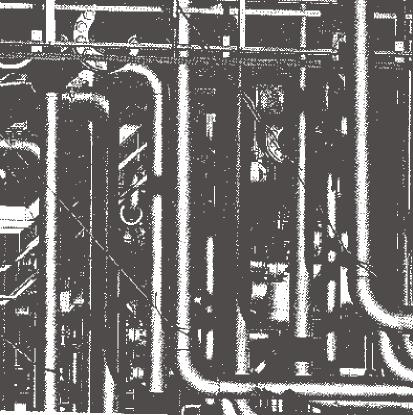News from Poland—Business & Law, Episode 38: procedure to approve an arrangement
In the newest episode Jakub Kokowski discusses the most common type of restructuring procedure in Poland, that is the procedure to approve an arrangement.

A deposit-refund scheme is on the way
More than four years after entry into force of the Single-Use Plastics Directive, Poland has adopted a law introducing a deposit-refund scheme. With the new solutions, the country is expected to achieve the high level of separate collection of packaging and packaging waste required by EU law.

The Digital Markets Act: A revolution, and not only for gatekeepers
The Digital Markets Act or DMA (Regulation (EU) 2022/1925 of the European Parliament and of the Council of 14 September 2022 on contestable and fair markets in the digital sector), which entered into force on 1 November 2022, creates many new obligations for businesses operating in the digital sector, particularly so-called “gatekeepers.” The DMA will impact the functioning of the entire digital ecosystem—not only gatekeepers, but also other participants in digital markets, including business users and end users of core platform services, competing providers of core platform services, and providers of other digital services.

Will pharmacy M&A still be possible?
On 17 August 2023 the parliament held its final vote on a bill to tighten the section of the Pharmaceutical Law known as “Pharmacies for Pharmacists.” Now the act will be sent to the President of Poland, who will decide whether to sign it into law. The amendment (known as “Pharmacies for Pharmacists 2.0”) is stirring a lot of controversy. Its entry into force would significantly restrict the possibility to buy and sell pharmacies, and would require the Pharmaceutical Inspectorate to scrutinise franchise agreements. Pharmacy chains are concerned that the new provisions will lead to expropriation.

The end of fast fashion? New regulations will soon cover textiles
Over 12.5 million tonnes of textile waste is generated every year in the European Union. Almost half of that is clothing or shoes. The average EU resident generates about 12 kg of textile waste per year. But there are no legal regulations in place facilitating sustainable management of such waste.

The situation of the secured creditor after taking title to pledged shares
When a creditor enforces its registered pledge by taking title to pledged shares, it’s just the start. To effectively take control of the company and satisfy its claim by selling the shares or assets, the creditor must take a series of legal and factual steps. It’s not always easy.

The purpose of referral to arbitration
Generally, dispute resolution is entrusted to state courts, but the parties can renounce this jurisdiction in favour of arbitration. Typically, the parties elect arbitration in an arbitration clause included in their original contract, signed well before any dispute arises. In other cases, after a dispute arises, the parties may agree to seek arbitration by signing a post-dispute referral to arbitration.

New cars from used parts? It is time for new automotive regulations
Each year, nearly a million used vehicles are exported from Europe, often in very poor condition. They mainly end up in Africa, where they pollute the environment and pose a risk to humans. At the same time, around 3.5 million vehicles a year disappear without a trace from European roads, presumably ending up illegally exported and dismantled. But they could be a source of spare parts and critical raw materials in Europe.

VAT sanctions: Amendments under the Slim VAT 3 package
No more rigid catalogue of sanctions for VAT offences. The tax authorities will be able to reduce the amount of sanctions taking into account the circumstances of the irregularities. But taxpayers who knowingly commit tax fraud will be hit with a sanction of 100% of the underpaid tax or excess input tax claimed.

New opportunities for recognition of Polish citizenship
In a recent case, we managed to break through the paradigm of automatic loss of Polish citizenship if foreign citizenship is acquired. The case involved a citizen of Argentina (the grandson of Polish immigrants) who was denied confirmation of Polish citizenship by the Minister of Interior and Administration. The authority found that although the client’s mother was the holder of Polish citizenship via her father, she lost it when she turned 18 because at that time she also held Argentinian citizenship, acquired at birth.

Will it be harder to obtain interim relief in intellectual property cases from July 2023?
New rules for interim relief in intellectual property cases in Poland entered into force on 1 July 2023. The changes are designed to address practical problems of businesses and eliminate earlier abuses of interim relief. But the amendment raises doubts and seems to heighten the procedural formalism.

Amendments to the Strategic Investment Programme for 2011–2030
The Council of Ministers has adopted an amendment to the Programme for Supporting Investments of Strategic Importance to the Polish Economy for 2011–2030, under Resolution 91/2023 of 5 June 2023. The changes will be in effect until the end of the support period (2025).
